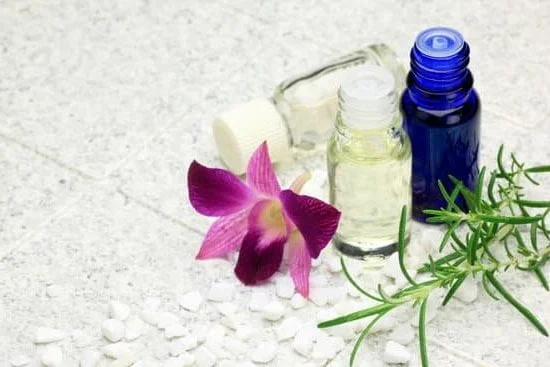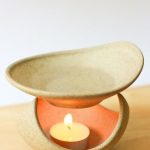Aromatherapy has been used for centuries as a natural way to promote relaxation and improve sleep quality. Many people are turning to this holistic practice to help them wind down after a long day and achieve a restful night’s sleep. In this article, we will explore what aromatherapy is good for sleep and how it can benefit your overall well-being.
Aromatherapy involves the use of essential oils extracted from plants to promote physical and psychological healing. When it comes to sleep, certain essential oils have been shown to have calming and sedative effects on the body, making them an excellent natural remedy for those struggling with insomnia or poor sleep quality. Understanding the science behind aromatherapy and its impact on sleep can provide valuable insight into how it can be used effectively.
In the following sections, we will delve into the best essential oils for promoting sleep, how to use aromatherapy for better sleep, tips for creating a relaxing environment for aromatherapy, and incorporating this practice into your bedtime routine. Additionally, we will discuss the benefits of aromatherapy for sleep and provide guidance on creating your own DIY sleep-inducing blends.
If you’re tired of counting sheep and are seeking a natural solution for achieving a restful night’s sleep, keep reading to discover the power of aromatherapy.
Understanding the Science Behind Aromatherapy and Sleep
Aromatherapy has been used for centuries as a natural remedy for promoting better sleep. But how exactly does it work? Understanding the science behind aromatherapy and sleep can help us appreciate its benefits and effectiveness in improving our quality of rest.
The sense of smell is closely linked to the brain’s limbic system, which controls emotions, behavior, and memory. When we inhale essential oils used in aromatherapy, their molecules travel through the nasal cavity and stimulate the olfactory receptors. These receptors then send signals to the brain, particularly the amygdala and hippocampus, which are responsible for processing emotions and memories. This process triggers relaxation, reduces stress, and promotes a state of calmness conducive to falling asleep.
Research has shown that certain essential oils have sedative properties that can positively impact sleep quality. For example, lavender oil has been found to promote deep sleep and reduce anxiety levels. Similarly, chamomile oil has calming effects that can help alleviate insomnia. These essential oils contain compounds that interact with neurotransmitters in the brain, such as serotonin and GABA, which play a role in regulating mood and sleep.
In addition to affecting the brain directly, aromatherapy also works on a physiological level by influencing the autonomic nervous system. Inhaling certain essential oils can slow down heart rate, lower blood pressure, and relax muscle tension – all of which contribute to creating an optimal state for falling asleep. Understanding these mechanisms provides valuable insights into what aromatherapy is good for sleep and how it can be effectively incorporated into our bedtime routine for better rest.
Best Essential Oils for Promoting Sleep
When it comes to using aromatherapy for promoting sleep, choosing the right essential oils is crucial. Certain essential oils have been found to have sedative properties that can help induce relaxation and promote better sleep. Lavender oil is one of the most popular choices for promoting sleep due to its calming and soothing effects. Studies have shown that inhaling lavender oil can improve sleep quality and reduce anxiety.
Another great essential oil for promoting sleep is chamomile. Chamomile has been used for centuries as a natural remedy for insomnia and anxiety. Its gentle, floral scent is known for its relaxing and calming effects on the mind and body. Additionally, bergamot oil is also effective in promoting relaxation and reducing stress, making it a good choice for improving sleep quality.
Incorporating these essential oils into your bedtime routine can be done in various ways, such as through diffusing the oils in your bedroom, adding a few drops to a warm bath or applying them topically with a carrier oil. It’s important to remember that everyone’s response to essential oils can vary, so it may take some trial and error to find the best combination that works for you.
| Essential Oil | Effect on Sleep |
|---|---|
| Lavender | Improves sleep quality and reduces anxiety |
| Chamomile | Natural remedy for insomnia and anxiety, promotes relaxation |
| Bergamot | Promotes relaxation and reduces stress |
How to Use Aromatherapy for Better Sleep
Aromatherapy can be a powerful tool for promoting better sleep, and there are various ways to incorporate it into your bedtime routine. One of the most popular methods is using an essential oil diffuser to fill your bedroom with calming scents.
This can create a relaxing atmosphere that can help prepare your body and mind for sleep. You can also add a few drops of essential oils to a warm bath or mix them with a carrier oil for a soothing massage before bed.
Another way to use aromatherapy for better sleep is by placing a few drops of essential oils on your pillow or bedding. The scent will linger as you drift off, providing a gentle and natural way to encourage relaxation. Additionally, some people find that applying essential oils directly to the skin, such as on pulse points like the wrists or temples, can have a calming effect that promotes sleep.
It’s important to remember that everyone’s response to aromatherapy is unique, so it may take some experimentation to find the best method for you. Whether it’s through diffusion, topical application, or direct inhalation, finding the right approach can have a significant impact on your ability to get restful sleep. Regardless of how you choose to use aromatherapy for better sleep, make sure to select high-quality essential oils and always follow proper dilution guidelines for safe use.
| Method of Aromatherapy | Effectiveness |
|---|---|
| Diffusing Essential Oils | Creates a relaxing atmosphere |
| Applying Oils Topically | Promotes relaxation through direct contact |
| Aromatic Bath or Massage | Soothes the body and mind before bedtime |
Aromatherapy DIY
Aromatherapy is a natural and effective way to promote relaxation and improve the quality of sleep. Many people find that using essential oils can help them unwind, de-stress, and create a calming bedtime routine. Making your own sleep-inducing blends allows you to tailor the aroma to your personal preferences and customize the blend for optimal relaxation.
Choosing the Right Essential Oils
When making your own sleep-inducing blend, it’s important to select essential oils known for their soothing and calming properties. Lavender oil is a popular choice due to its ability to reduce stress and anxiety, promoting a sense of calm. Other options include chamomile, ylang-ylang, bergamot, and cedarwood. These oils have been traditionally used for their sedative effects on the mind and body.
Creating Your Blend
Once you have chosen the essential oils for your blend, you can begin creating your personalized sleep-inducing mix. To make a simple blend, combine a few drops of each chosen essential oil with a carrier oil such as sweet almond or jojoba oil. The ratio will depend on personal preference and sensitivity to scents but generally ranges from 1-3% dilution for adults.
Using Your Blend
After creating your personalized sleep-inducing blend, there are various ways to incorporate it into your bedtime routine. You can use it in an aromatherapy diffuser or add a few drops onto a cotton ball placed near your pillow or bed. Additionally, mixing it with unscented lotion or massage oil can provide a calming self-massage before bed. By experimenting with different application methods, you can find what works best for enhancing your sleep experience utilizing aromatherapy.
By making your own sleep-inducing blends at home with carefully selected essential oils, you have the opportunity to create a personalized and enjoyable bedtime ritual that promotes deep relaxation and supports restful sleep.what aromatherapy is good for sleep.
The Benefits of Aromatherapy for Sleep
Aromatherapy has been used for centuries as a natural remedy for promoting relaxation and improving sleep quality. Many people turn to aromatherapy as an alternative to medications or other sleep aids, seeking the benefits of using essential oils to create a calming and soothing environment.
Improves Sleep Quality
One of the main benefits of using aromatherapy for sleep is its ability to improve the overall quality of sleep. Certain essential oils have sedative properties that can help calm the mind and body, making it easier to fall asleep and stay asleep throughout the night. By diffusing these oils or using them in a bedtime routine, individuals may experience deeper and more restful sleep.
Reduces Stress and Anxiety
Aromatherapy is also beneficial for reducing stress and anxiety, which are common factors that can contribute to sleep disturbances. Essential oils such as lavender, chamomile, and bergamot have been shown to have calming effects on the nervous system, helping to alleviate feelings of tension and worry. As a result, using these oils in aromatherapy may promote a sense of relaxation that supports better sleep.
Natural Alternative to Medications
For those who prefer natural remedies over pharmaceutical interventions, aromatherapy offers a gentle yet effective approach to improving sleep. Rather than relying on prescription or over-the-counter sleep medications, individuals can explore the benefits of aromatherapy as a safe and non-invasive option for addressing insomnia or other sleep-related issues. This natural approach may be particularly appealing to those who are looking for holistic ways to support their overall well-being.
Tips for Creating a Relaxing Environment for Aromatherapy
Creating a relaxing environment is essential when using aromatherapy for sleep. The right ambiance can enhance the effectiveness of essential oils and promote a more restful night’s sleep. To create a calming atmosphere, it’s important to consider factors such as lighting, temperature, and overall cleanliness.
Soft, warm lighting can help induce relaxation, so consider using candles or dimming the lights in your bedroom. Ensuring that the room is at a comfortable temperature is also crucial, as being too hot or too cold can disrupt sleep.
In addition to setting the right mood with lighting and temperature, it’s important to keep your sleeping space clean and clutter-free. A messy environment can lead to stress and anxiety, which are detrimental to quality sleep. Plus, dust and allergens in the air can exacerbate breathing issues or allergies that may interfere with sleep. Regularly cleaning your bedroom, including changing bedding and dusting surfaces, can contribute to a better sleep environment.
Furthermore, incorporating calming sounds into your sleeping space can enhance the benefits of aromatherapy for sleep. Consider playing soft music or nature sounds to create a soothing atmosphere. Alternatively, some people find white noise machines or soundscapes helpful for drowning out external noises that may disrupt sleep. Experiment with different sounds to find what works best for you in combination with aromatherapy for optimal relaxation and improved sleep quality.
By creating a peaceful environment through these tips, you can maximize the benefits of aromatherapy for promoting better sleep. When combined with the use of essential oils and other relaxation techniques, your bedroom can become an oasis of calmness that supports restful nights and refreshed mornings.
Incorporating Aromatherapy Into Your Bedtime Routine
When it comes to incorporating aromatherapy into your bedtime routine, there are a few key things to keep in mind. One of the most effective ways to use essential oils for sleep is through diffusion. This can be done with an electric diffuser, which disperses the oil into the air, or simply by adding a few drops of your chosen oil to a cotton ball and placing it near your bedside.
Another way to incorporate aromatherapy into your bedtime routine is through topical application. This can be done by diluting essential oils with a carrier oil, such as coconut or almond oil, and applying it directly to the skin. One popular method is to massage the diluted oil onto the soles of the feet before bed, as this area has some of the largest pores on the body and can effectively absorb the oils.
Additionally, you can also add a few drops of essential oil to a warm bath before bedtime. Not only does this help promote relaxation and calmness, but it also allows for easy absorption of the oils through both inhalation and skin contact. Some popular essential oils for sleep include lavender, chamomile, and ylang-ylang. These scents are known for their calming properties and ability to promote relaxation and restful sleep.
- Electric diffuser
- Cotton ball
- Carrier oil
- Coconut or almond oil
- Lavender essential oil
- Chamomile essential oil
- Ylang-ylang essential oil
Conclusion
In conclusion, aromatherapy has been proven to be a powerful tool for promoting better sleep and overall relaxation. By understanding the science behind it and the best essential oils for sleep, individuals can effectively incorporate aromatherapy into their bedtime routine to experience its numerous benefits. Whether through diffusing essential oils, creating DIY blends, or simply incorporating it into a relaxing environment, aromatherapy can prove to be a game-changer for those struggling with sleep issues.
The power of aromatherapy lies in its ability to activate the olfactory system, which directly impacts the brain’s limbic system responsible for emotions and memories. This makes it an effective tool for reducing stress and anxiety, two common culprits of sleep disturbances. When used properly, aromatherapy can create an environment conducive to relaxation and help signal the body that it is time for rest.
In embracing the power of aromatherapy for a good night’s sleep, individuals can take charge of their sleep hygiene and actively work towards improving their quality of rest. By incorporating these techniques into their nightly routine, they are taking proactive steps towards achieving a better night’s sleep and enjoying the numerous benefits that come with it.
So next time you find yourself tossing and turning at night, consider turning to the power of aromatherapy to help you drift off into a peaceful slumber.
Frequently Asked Questions
Which Essential Oil Is Best for Sleep?
Lavender essential oil is widely regarded as the best oil for promoting sleep. Its soothing and calming properties are known to help reduce stress and anxiety, making it easier for people to fall asleep and achieve a restful night’s sleep.
What Can You Diffuse for Better Sleep?
To achieve better sleep, you can diffuse essential oils such as lavender, chamomile, or cedarwood. These scents have been found to promote relaxation and create a peaceful environment that can aid in improving the quality of your sleep.
What Scent Helps You Sleep?
The scent of lavender is known to help people sleep better due to its calming and relaxing effects on the mind and body. Other scents like chamomile, bergamot, and sandalwood also have similar calming properties that can contribute to a restful night’s sleep.

Are you looking for a natural way to improve your health and wellbeing?
If so, aromatherapy may be the answer for you.





